What is Engineered Wood Flooring? Pros and Cons
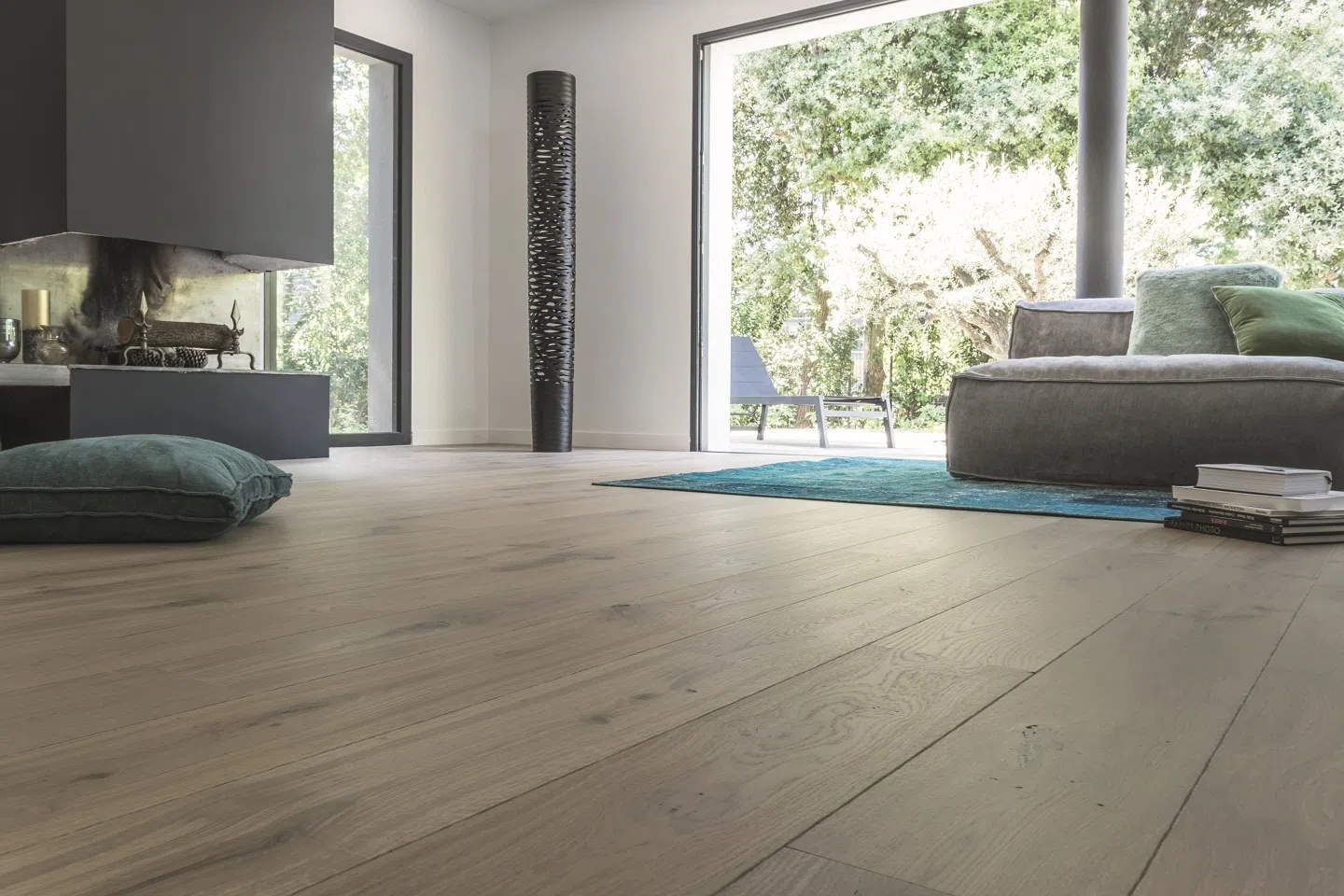
Due to its versatility and appealing aesthetics, engineered wood flooring has gained significant popularity among homeowners and interior designers. This flooring option seamlessly merges the inherent elegance of wood with cutting-edge construction methods, making it an enticing choice for residential and commercial spaces. This article will explore engineered wood flooring, its definition, growing popularity, and appeal.
It is an important task for you to find the most suitable type hardwood floor for your home that match the space and other elements of the room.
What is Engineered Wood Flooring?
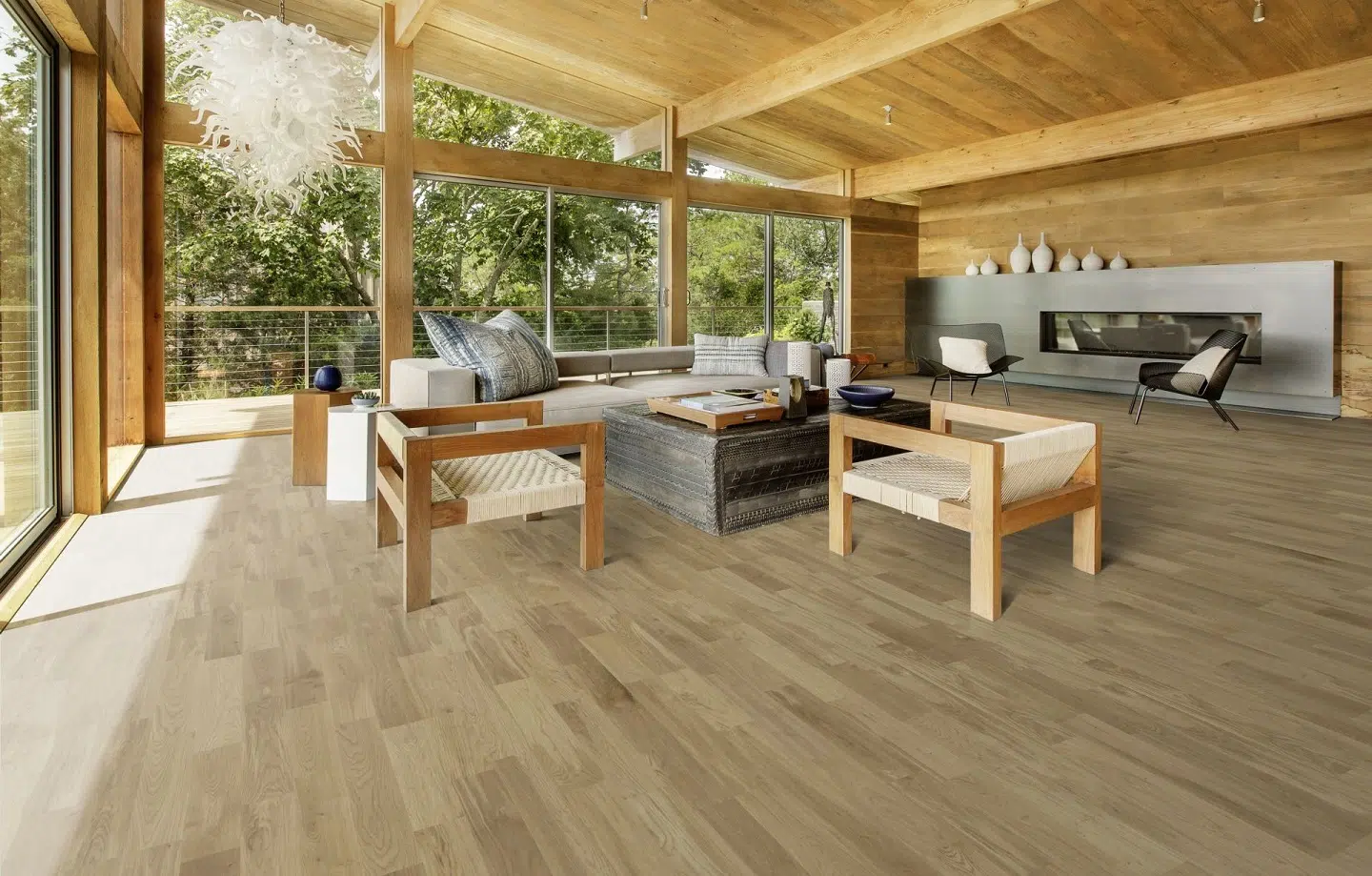
Engineered wood flooring is made by combining layers of wood veneer and plywood. The top layer is a thin slice of real hardwood, giving it the natural appearance of traditional hardwood flooring. The layers beneath are usually plywood, providing stability and durability; unlike solid hardwood flooring, made from a single piece of wood, engineered wood flooring is made by bonding these layers. The top layer, the veneer, features a thin slice of real hardwood, providing the authentic look and feel of traditional hardwood flooring. The layers underneath are typically made of plywood, which enhances the flooring’s stability and durability.
The versatility of engineered wood flooring is a leading factor contributing to its popularity. This flooring option can be seamlessly installed in various settings, from bedrooms, living rooms, and kitchens to basements. Its ability to withstand moisture and temperature fluctuations makes it suitable for areas where solid hardwood flooring may not be recommended. This adaptability has made engineered wood flooring a favorite choice among homeowners and designers looking for a consistent flooring option throughout their homes.
The extensive availability of styles and finishes further enhances the appeal of engineered wood flooring. This flooring option offers diverse options, showcasing an abundance of wood species. From well-loved selections like oak, maple, and walnut to more unique and exotic choices such as bamboo and teak, engineered wood flooring provides a broad spectrum of styles and finishes to cater to various preferences.
This variety allows homeowners to choose a flooring option that complements their unique style and design preferences. Additionally, engineered wood flooring can be stained or finished in different ways, enabling customization to match any interior décor. Besides, this kind of flooring offers exceptional durability. The layered construction of this type of flooring provides stability, reducing the risk of warping, cupping, or expanding that can occur with changes in humidity and temperature. The durability of engineered wood flooring makes it a prudent and cost-effective investment, capable of enduring high levels of foot traffic while retaining its aesthetic allure over an extended period. This quality ensures it remains resilient and visually appealing for years, solidifying its reputation as a long-lasting flooring option.
Engineered wood flooring is also renowned for its relatively easy installation. Many engineered wood flooring options feature a convenient tongue-and-groove system, allowing the planks to fit together seamlessly. The installation process is simplified by this feature, making engineered wood flooring a practical choice for both DIY enthusiasts and professionals. Its user-friendly nature ensures that it can be easily installed by individuals seeking to tackle the project themselves while meeting the standards expected by experienced flooring professionals.
Discover more flooring materials and make a wise decision for your home remodeling.
Advantages of Engineered Wood Flooring
Let’s discuss the advantages of engineered flooring below:
-
Resistance to moisture and temperature fluctuations
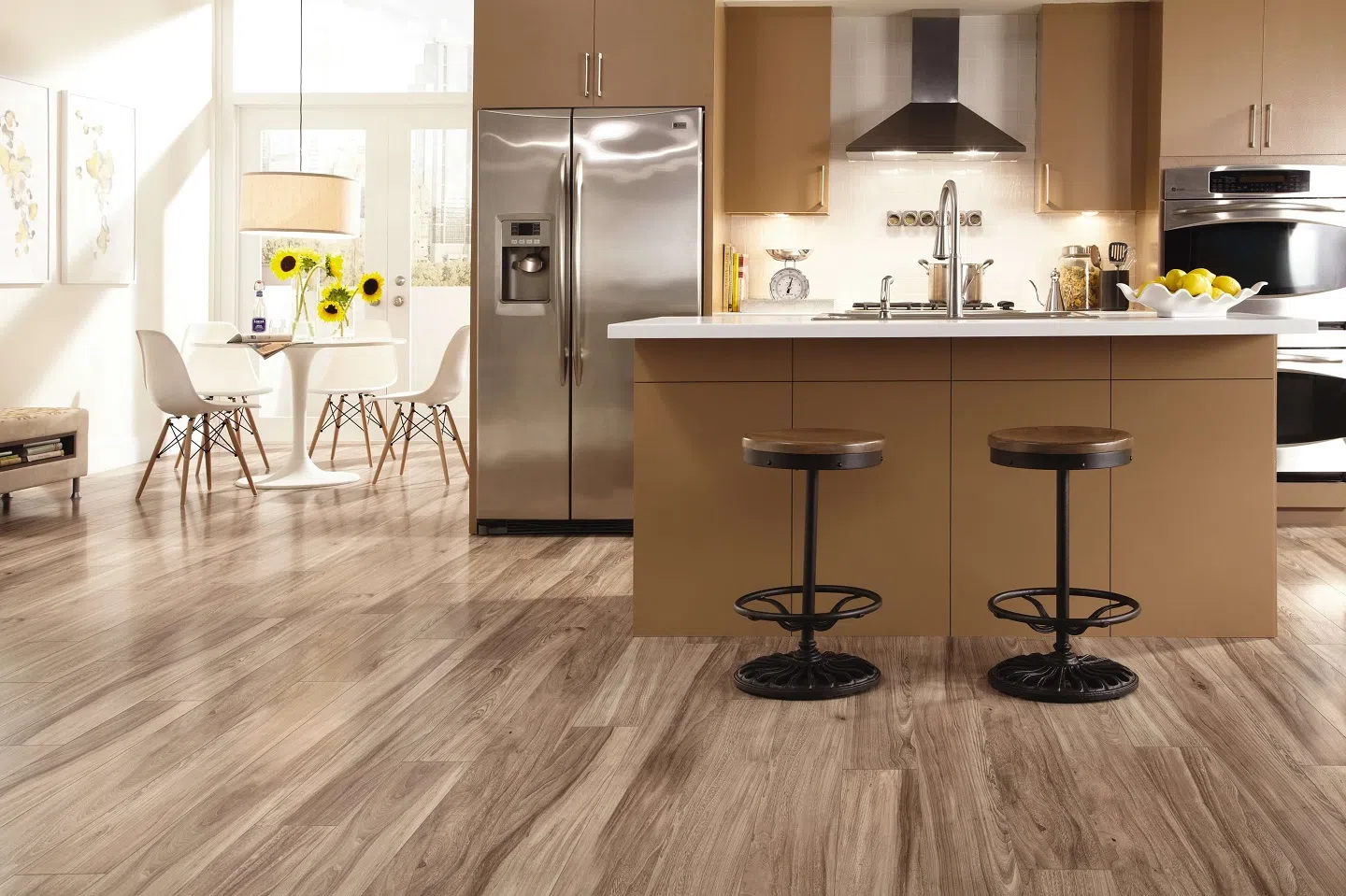
Engineered wood flooring is remarkably water-resistance and moisture-resistant. Unlike traditional hardwood floors, which are prone to warping, cupping, and expanding when subjected to high humidity or abrupt temperature changes, engineered wood flooring maintains its structural integrity and appearance even in challenging environmental conditions. However, engineered wood flooring’s unique construction protects against these issues.
-
Benefits for high-humidity areas like kitchens and bathrooms
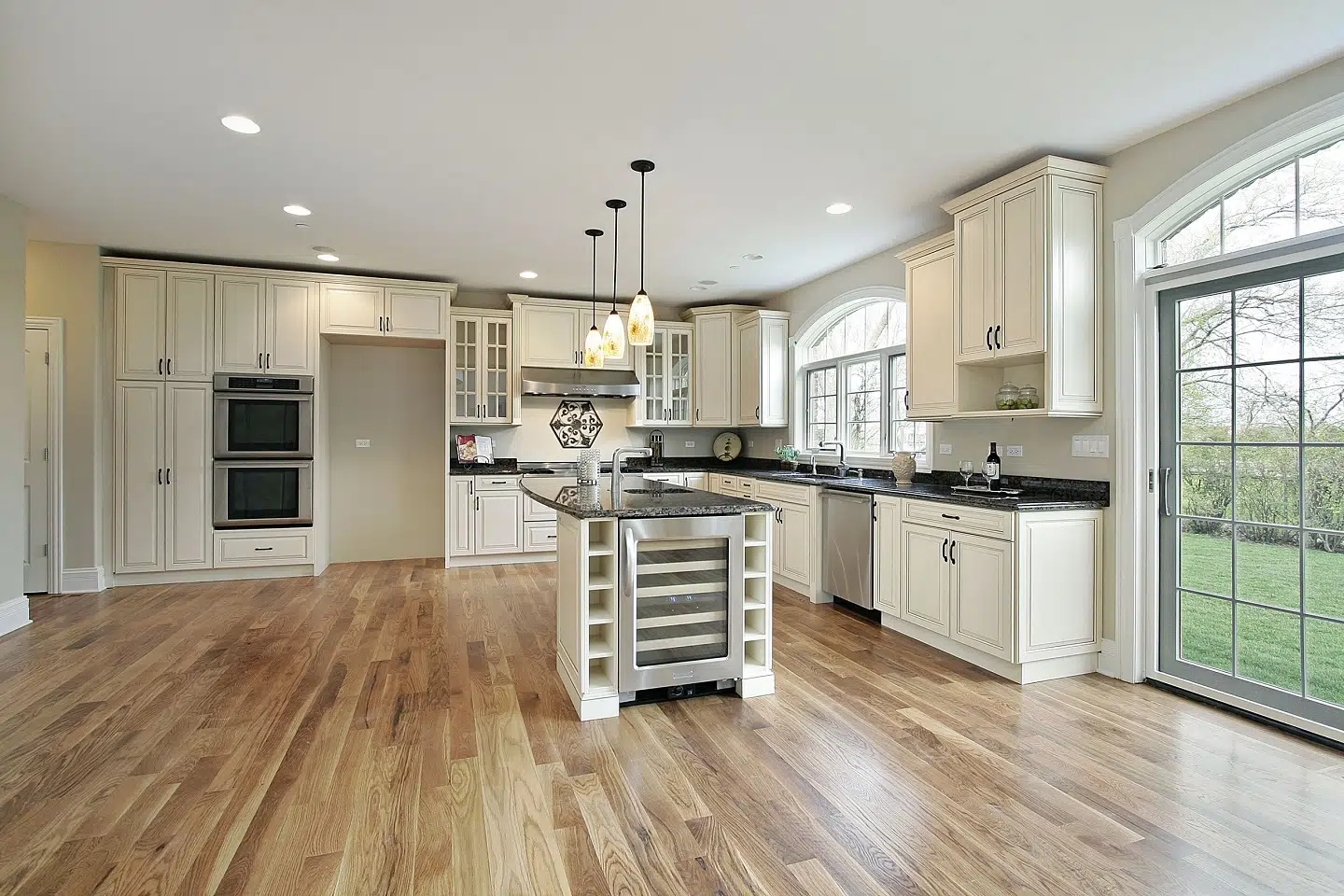
High-humidity areas, such as kitchens and bathrooms, challenge many flooring options. The presence of moisture and frequent exposure to water can cause damage and deterioration over time. Engineered wood flooring is an excellent solution for these spaces due to its moisture resistance. The underlying plywood layers in engineered wood flooring serve as a protective barrier, effectively preventing moisture infiltration into the wood and safeguarding it against swelling or warping. This design feature ensures the long-term durability and stability of the flooring by minimizing the detrimental effects of moisture exposure. In other words, engineered wood flooring can withstand the occasional spills and splashes that commonly occur in kitchens and bathrooms without sustaining significant damage. This moisture-resistant characteristic not only preserves the structural integrity of the flooring but also helps prevent the development of harmful allergens, enhancing the overall air quality and well-being of the space.
-
Reduced risk of warping or shrinking
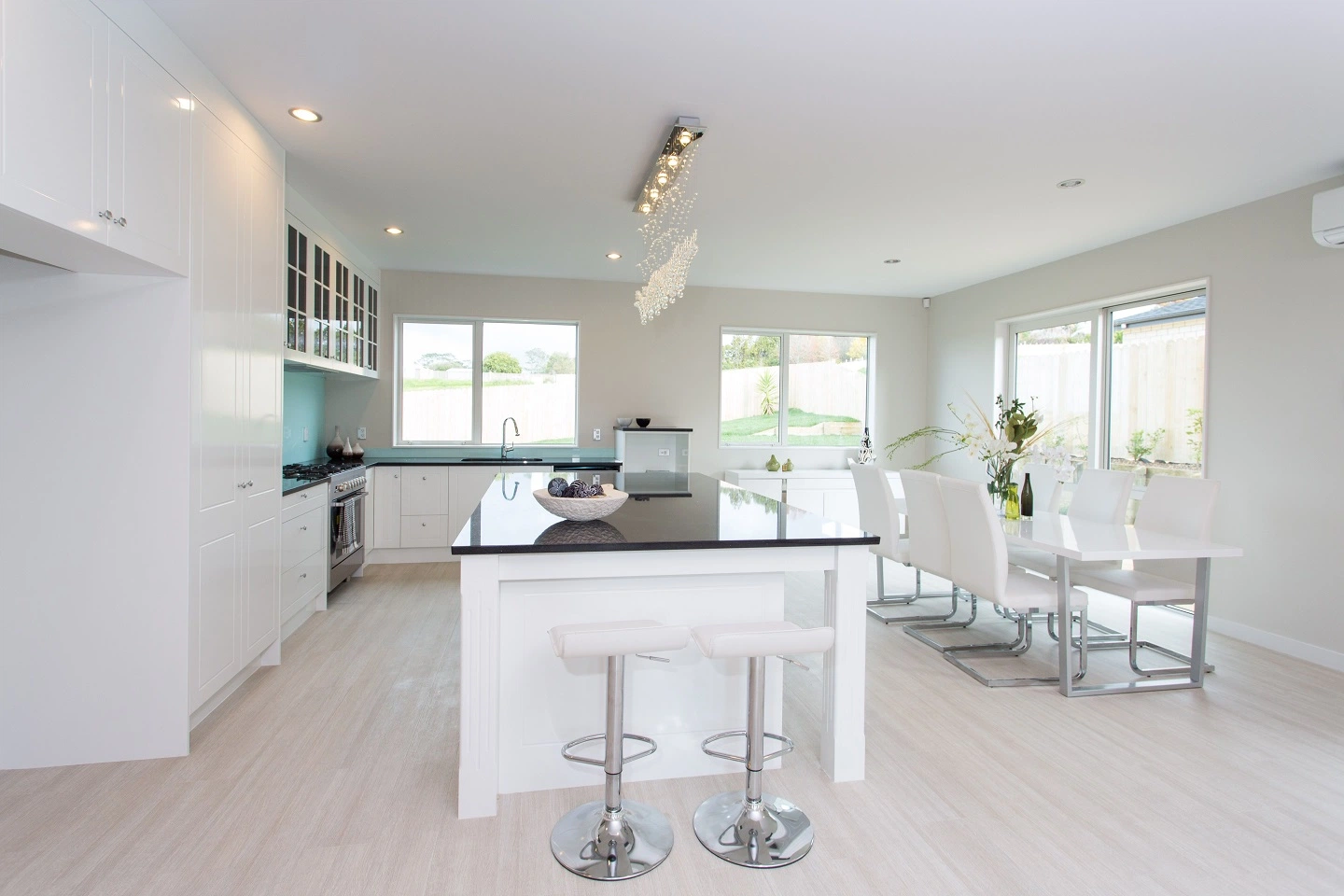
In addition to moisture resistance, engineered wood flooring’s layered construction offers improved dimensional stability compared to solid hardwood floors. Changes in humidity and temperature cause solid hardwood to expand or contract, leading to warping, cupping, or gaps between the planks. Engineered wood flooring, on the other hand, is less prone to such issues.
The plywood layers in the engineered wood act as a stabilizing force, minimizing the effects of humidity and temperature fluctuations. This stability ensures the flooring maintains its shape and integrity, even in environments with varying climate conditions. As a result, homeowners can enjoy the beauty of wood flooring without worrying about the unsightly gaps or uneven surfaces that can occur with solid hardwood.
Disadvantages of Engineered Wood Flooring
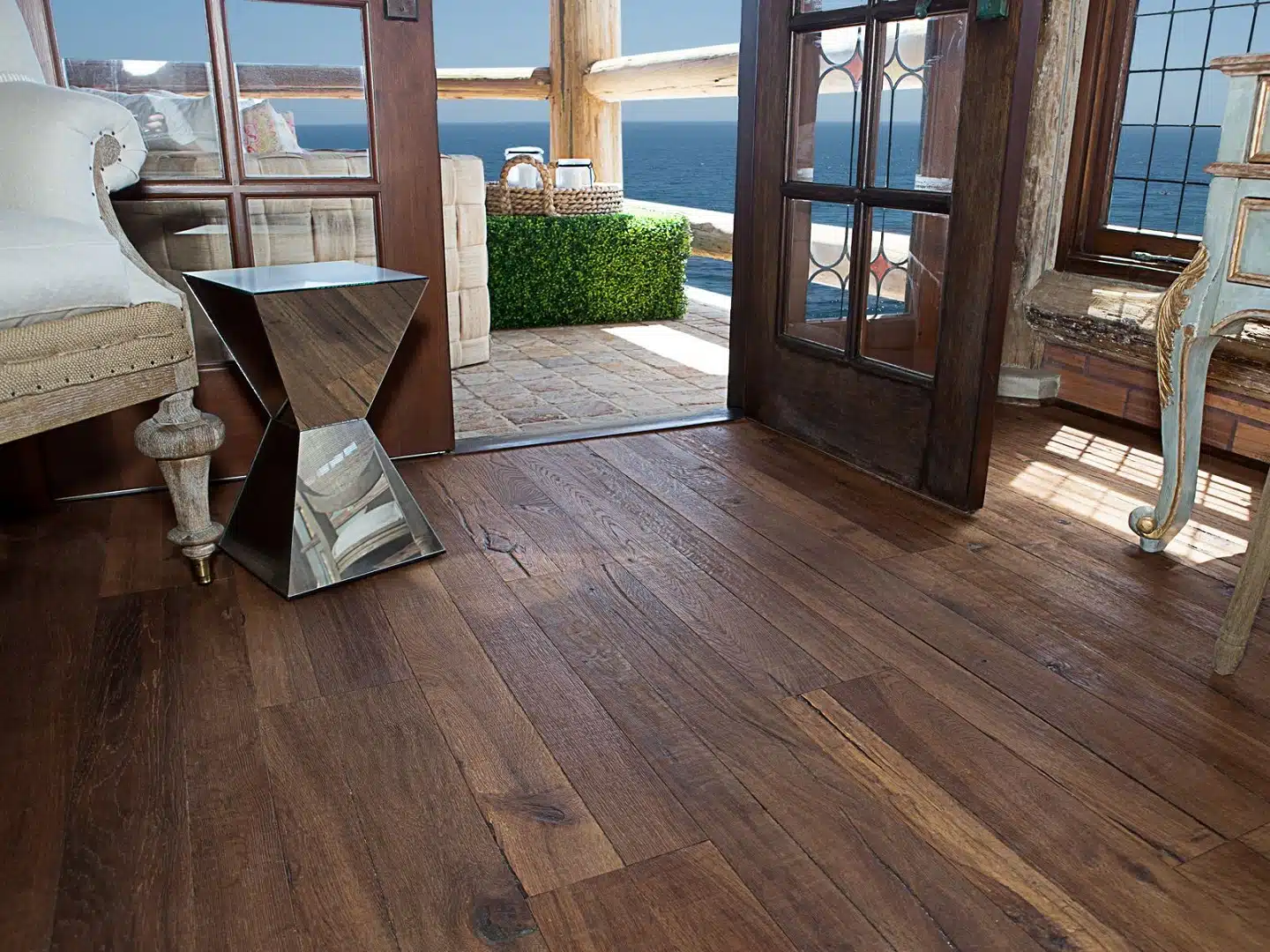
Despite its many advantages, engineered wood flooring also presents some disadvantages that should be considered before making a final flooring decision. While engineered wood combines the beauty of real wood with enhanced stability, it does have a few drawbacks.
One significant disadvantage is that engineered wood flooring has a limited lifespan compared to solid hardwood floors. The top layer of real wood in engineered flooring can be sanded down and refinished a few times, depending on its thickness. Over time, the floor may wear out and lose its original luster, requiring a complete replacement rather than simply refinishing.
Another drawback of engineered wood flooring is that engineered wood flooring often comes with a higher price tag when compared to alternative flooring options such as laminate or vinyl. Despite offering genuine wood’s visual charm and tactile qualities, the elevated cost can be attributed to the intricate manufacturing process and the utilization of premium materials. Therefore, individuals with budget limitations should carefully weigh their financial considerations as engineered wood flooring may not be the most economical selection for them.
Comparison between Wood Flooring and Vinyl Flooring
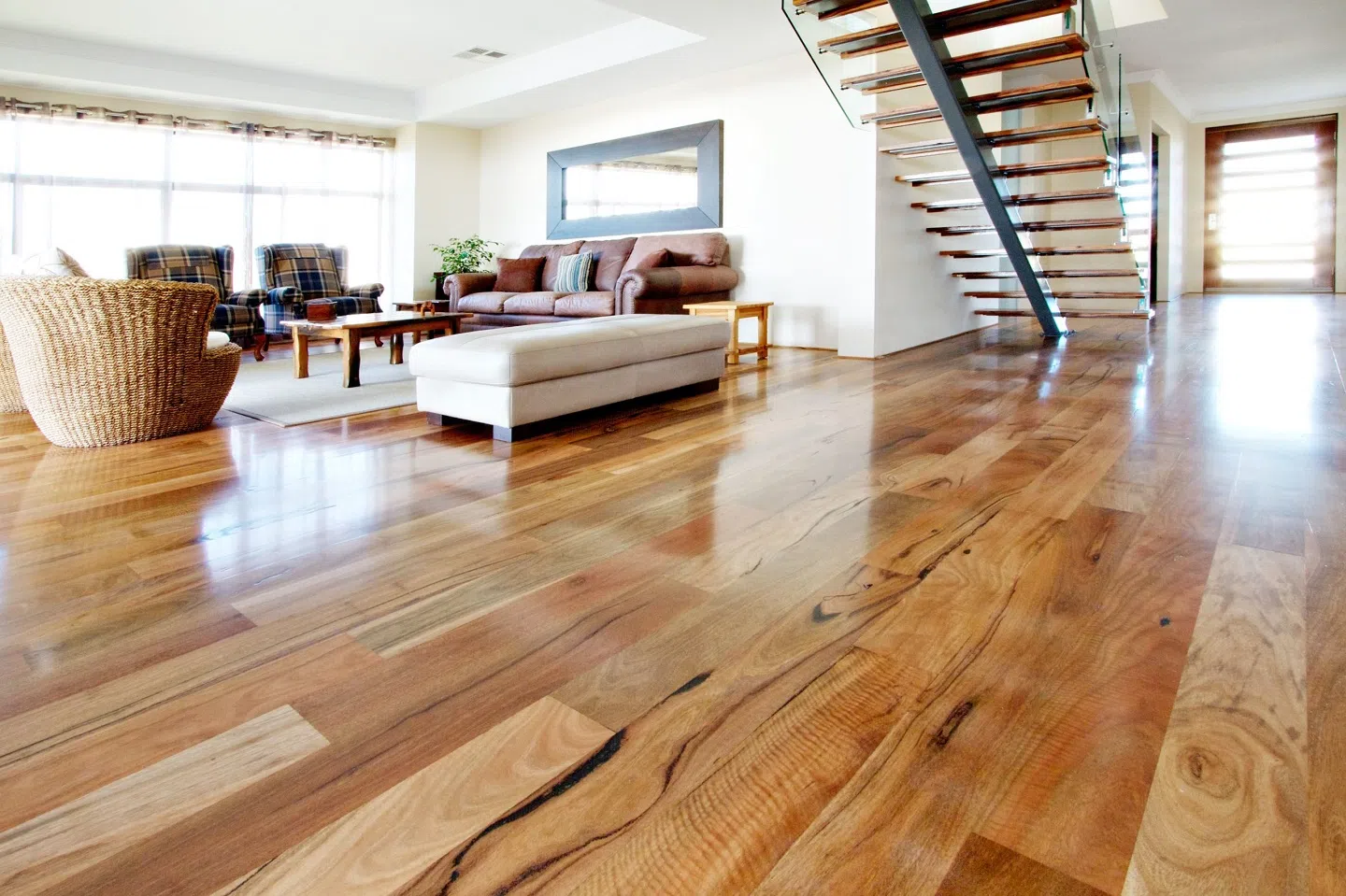
When considering the optimal flooring selection for your residence or commercial establishment, two frequently pondered choices include wood flooring and vinyl flooring. Each option possesses distinctive characteristics and advantages, and gaining insight into their disparities can empower you to make a well-informed decision.
Wood Flooring
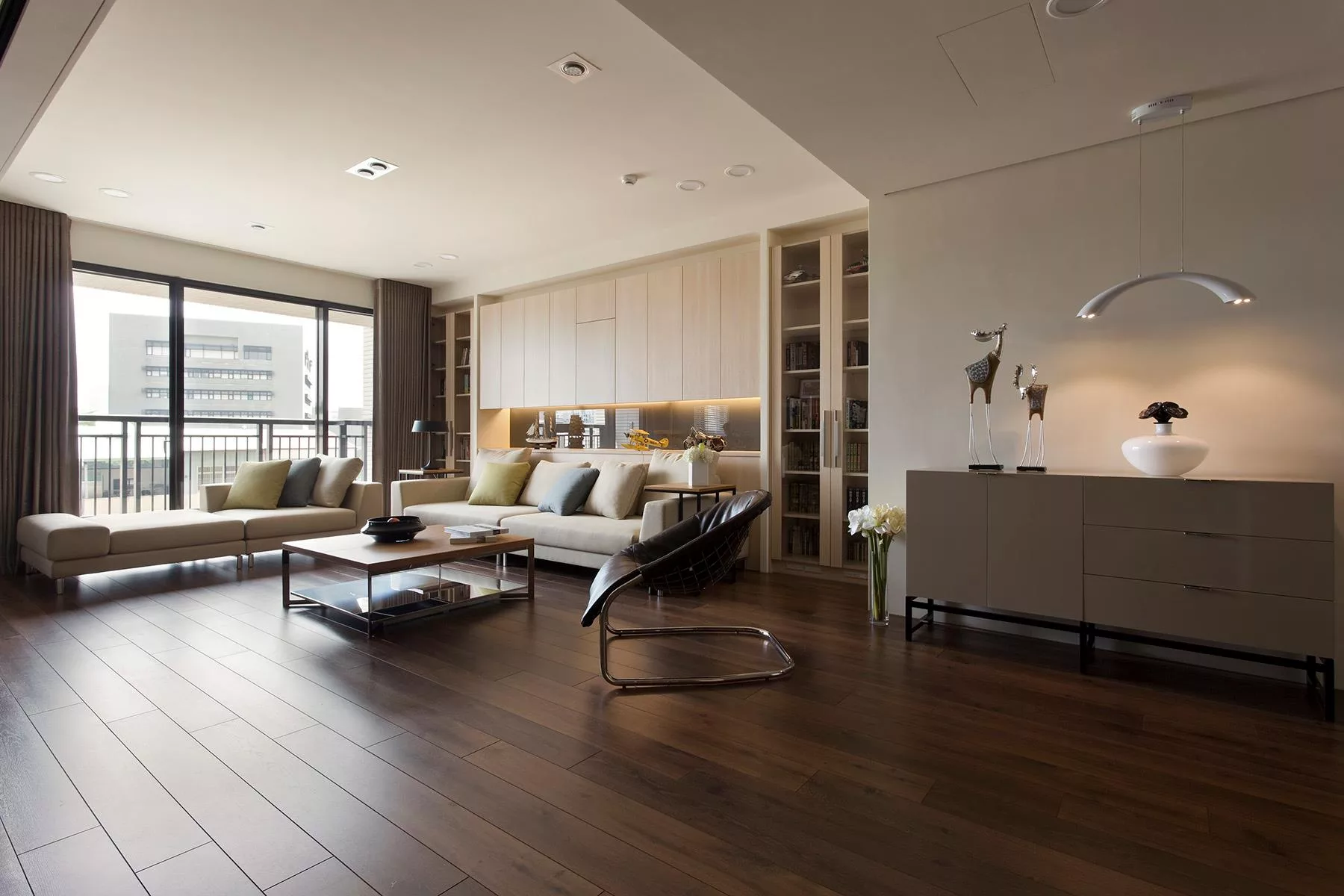
Whether solid hardwood or engineered wood, wood flooring offers a timeless and elegant look that adds warmth and natural beauty to any space. Here are some key advantages of wood flooring:
- Aesthetic Appeal: Wood flooring is highly valued for its authentic and luxurious appearance. It showcases natural wood’s unique grain patterns, colors, and textures, providing a sense of sophistication and elegance. Wood’s warmth and beauty can enhance a room’s overall ambiance and complement various interior design styles.
- Durability and Longevity: Solid hardwood flooring is known for its exceptional durability and longevity. It can withstand heavy foot traffic, and with good care and keeping, it can last for generations. With its layered construction, engineered wood flooring offers enhanced stability and resistance to moisture and temperature fluctuations, making it a durable and long-lasting option.
- Refinishing Options: One of the great benefits of wood flooring is the ability to sand and refinish it. Over time, if scratches or wear marks appear, wood floors have the advantage of being sanded down and refinished to restore their original beauty. This process allows homeowners to refresh the appearance of their floors without having to replace them entirely.
Vinyl Flooring
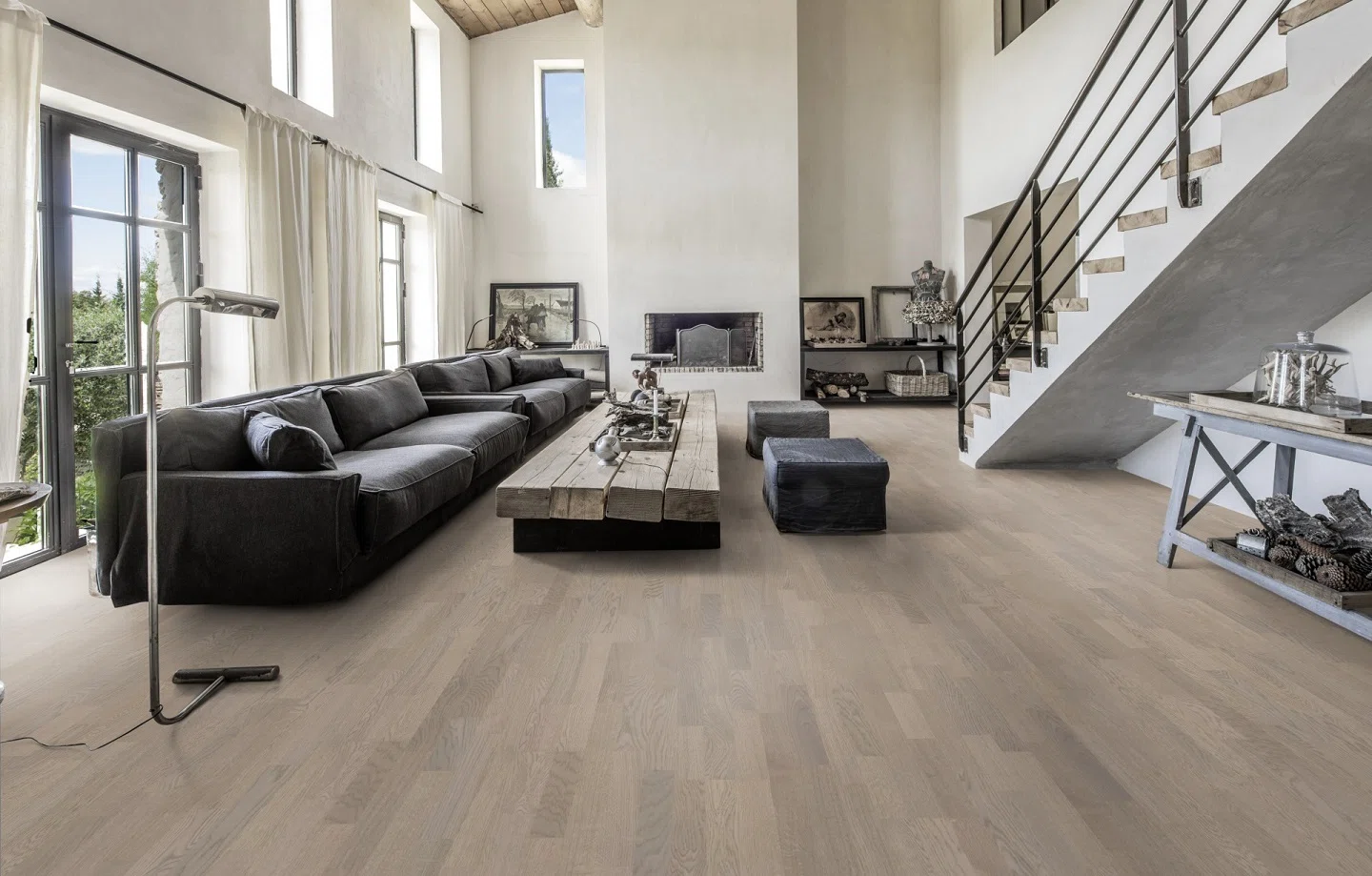
Vinyl flooring has recently gained popularity due to its affordability, versatility, and low maintenance requirements. Here are a few key benefits of choosing vinyl flooring:
- Cost-effectiveness: Vinyl flooring has proven to be a more affordable alternative than wood flooring options, making it an attractive and budget-friendly choice for numerous homeowners. It offers an economical way to achieve the look of various flooring styles, including hardwood, tile, or stone, without the higher price tag.
- Moisture Resistance: With its exceptional moisture resistance, vinyl flooring is an excellent option for spaces susceptible to spills or high humidity, such as kitchens, bathrooms, or basements. It is waterproof and less susceptible to warping or damage caused by moisture exposure, offering peace of mind for homeowners concerned about potential water damage.
- Easy Maintenance: Vinyl flooring is known for its low maintenance requirements. It exhibits remarkable resistance to stains, scratches, and scuffs, rendering it highly suitable for areas with heavy foot traffic. Regular sweeping or vacuuming and occasional mopping are typically sufficient to keep vinyl floors looking clean and well-maintained.
- Versatility and Design Options: Vinyl flooring offers various design options to suit different preferences and styles. Available in various colors, patterns, and textures, vinyl flooring allows homeowners to discover the ideal complement to their unique aesthetic preferences. Some vinyl flooring options even feature realistic embossed textures that mimic the look and feel of natural materials.
Final Note
Wood flooring and vinyl flooring are two distinct options with their own sets of advantages. Wood flooring offers timeless beauty, durability, and the ability to be refinished, but it tends to be pricier. Conversely, vinyl flooring offers affordable prices, exceptional moisture resistance, effortless maintenance, and extensive design possibilities. Consider your priorities, budget, and the specific needs of your space to determine which flooring option best suits your requirements.
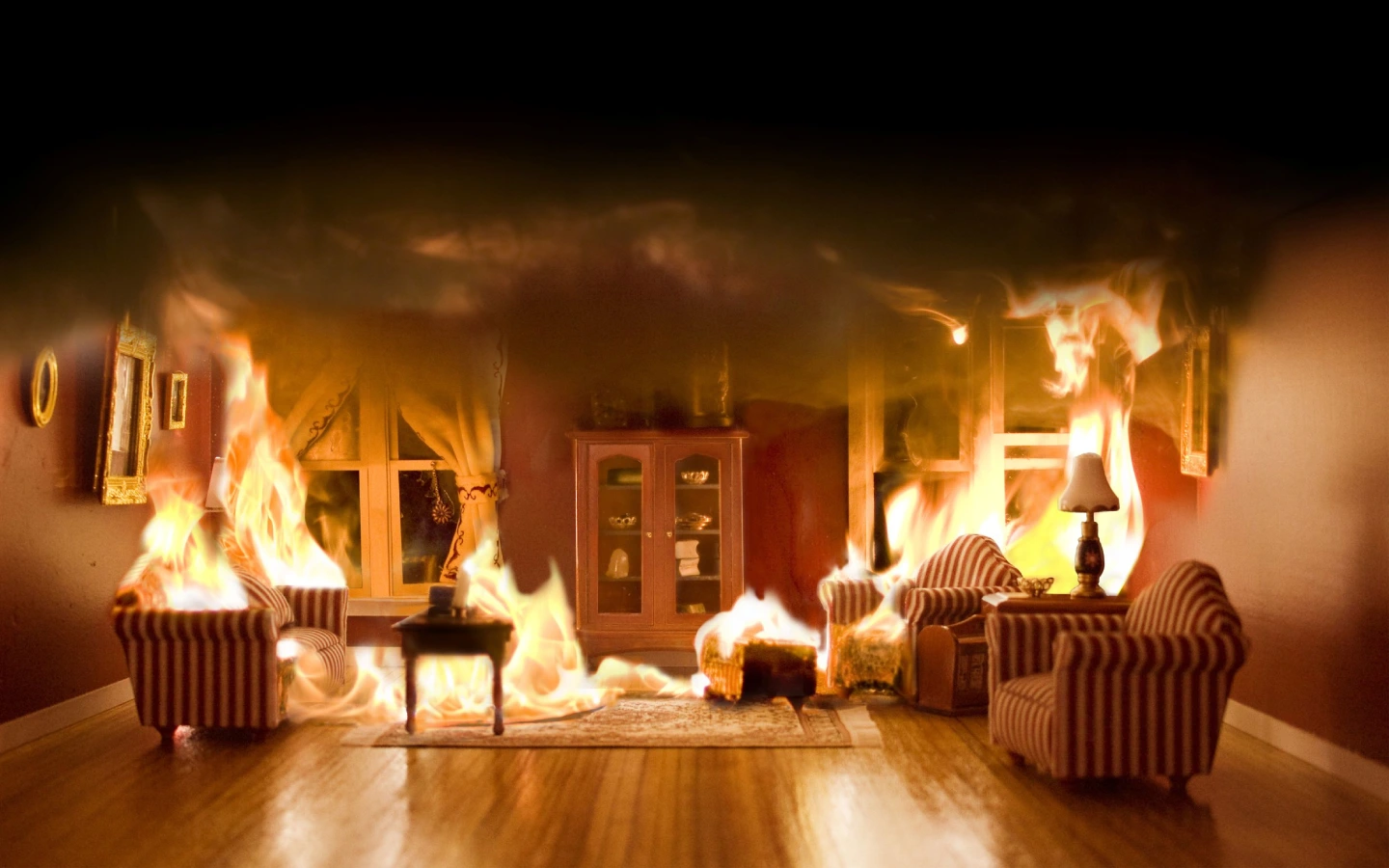
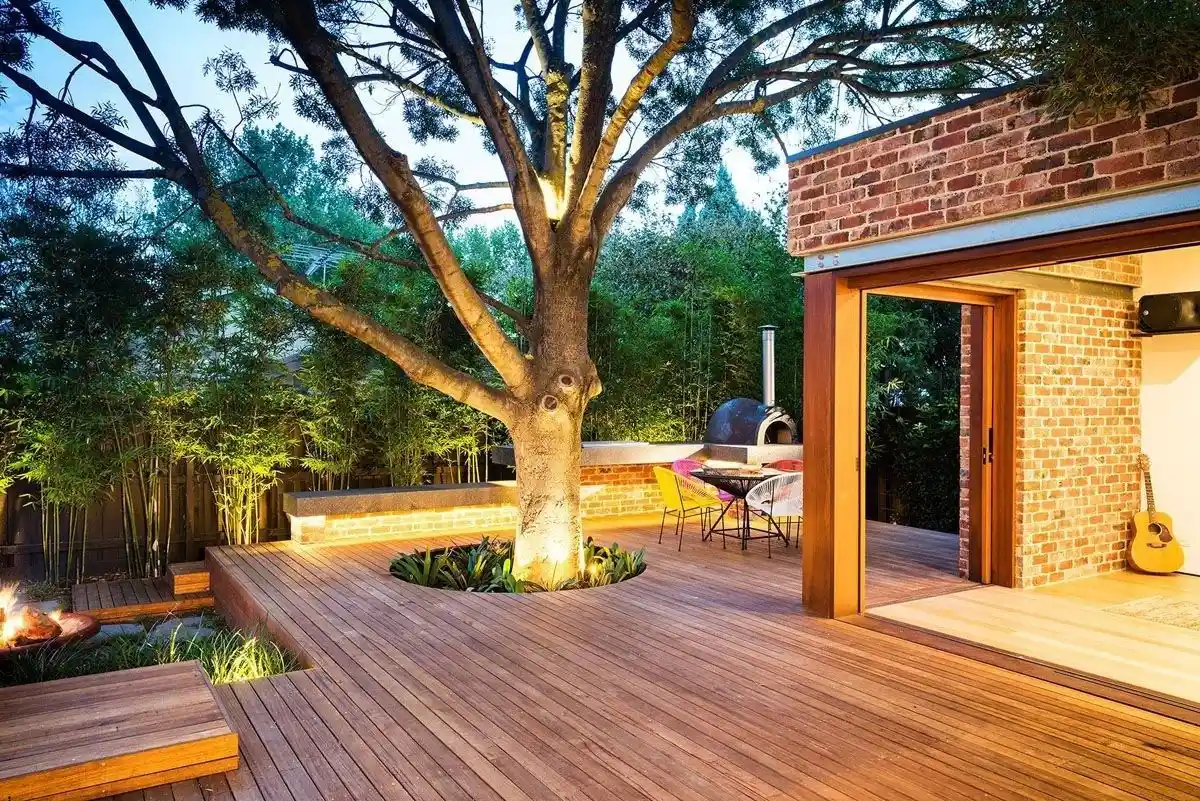
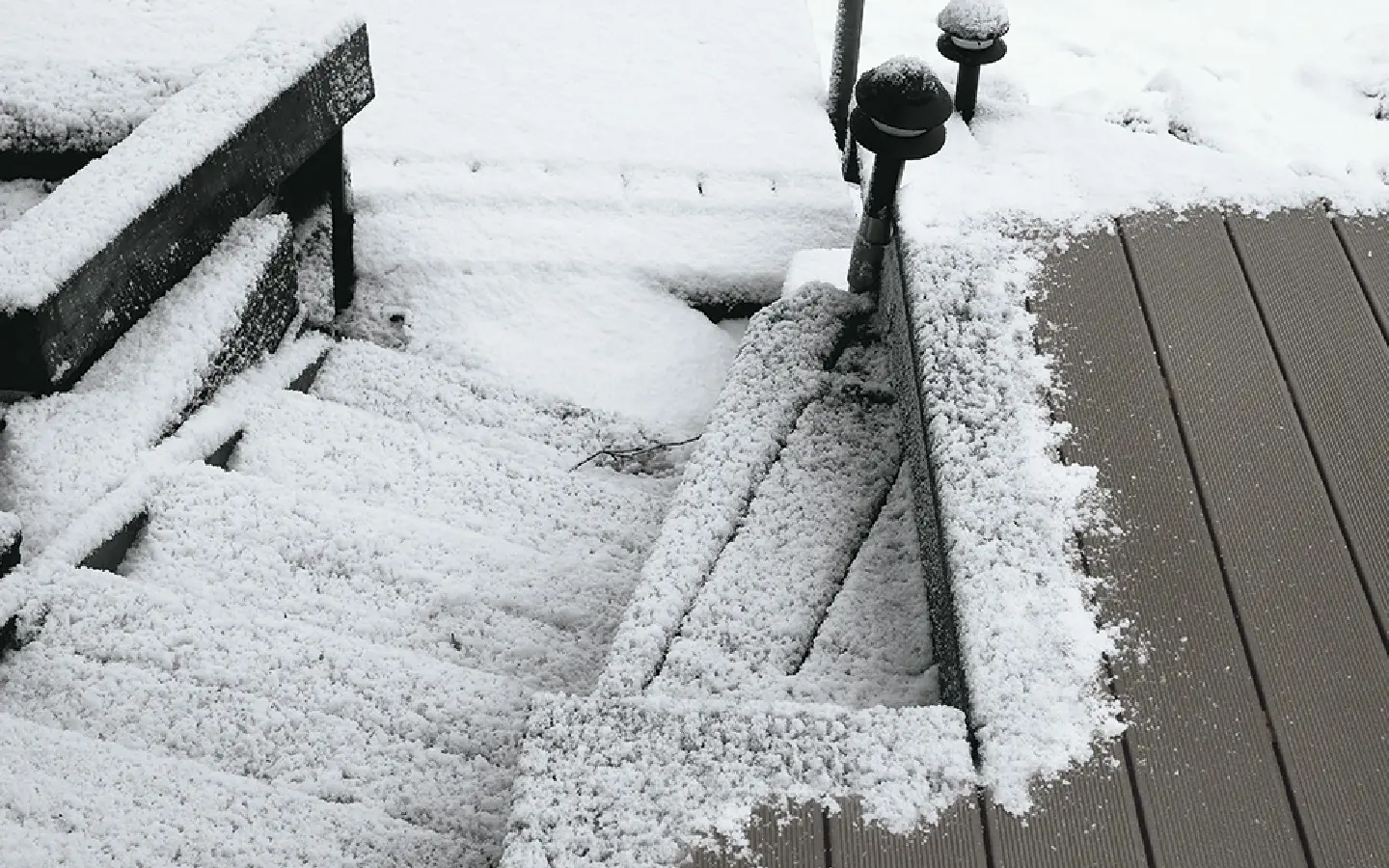
Did you find what you were looking for?